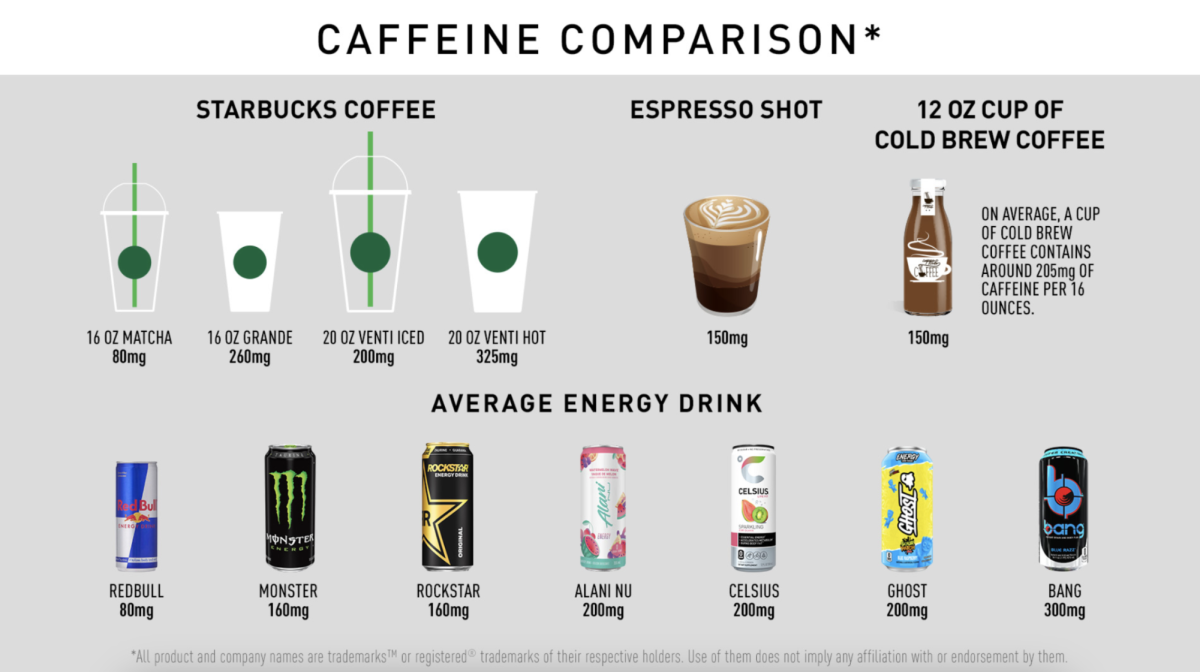The undeniably popular Celsius beverage, a sweet-tasting and caffeine-loaded energy drink, has swept the Westminster campus in recent years. While students have often used caffeinated drinks as a crutch during the school week, Celsius’s high amount of caffeine raises red flags and leads to alarming conversations among students and staff alike.
Celsius is one of the leading energy drinks today. It’s the second best seller on Amazon, and the fastest-growing energy drink in the US. The brand has gained a competitive edge against other energy drinks such as Monster, Red Bull, and Bang by marketing itself toward the health and fitness industry. Positioned as a better-for-you product, the drink claims to offer benefits such as increasing endurance, reducing body fat, and providing a greater resistance to fatigue. Containing 200 mg of caffeine in one can, Celsius offers instant energy with just one sip.
“My heart is racing,” said freshman Kate Lane when describing the effects of drinking a Celsius.
Sophomore cheer captain Caroline Kent shared a similar experience. “I felt like my body was vibrating after I drank the Celsius,” she said.
An avid drinker of Celsius, junior Marjorie Gituku provides more insight into her relationship with the drink.
“When I first drank a Celsius, I really just wanted to try it,” said Gituku. “I would say I have a minor dependence on Celsius; at least, I’m noticeably more tired when I don’t have a Celsius in the morning. It’s not an issue for me, but I could see how it would be for someone else.”
When asked about the rise of Celsius, sophomore grade chair Adam Pullen mentioned a noticeable increase in the drink’s popularity.
“I have seen more of those [drinks] showing up across campus. Caffeine abuse and a lack of sleep are definitely out there whether students are up studying or just staying up later than they should. It is certainly an issue,” said Pullen.
Celsius offers a quick morning fix to restless nights that Westminster students often face, but this might not be beneficial for our student body overall. The energy drink contains a dosage of caffeine equivalent to over three shots of espresso, or almost six Cokes. Not only is this large amount of caffeine excessive, it could also have detrimental effects on students’ sleep schedules. A pattern of staying up late and masking drowsiness with caffeine can lead to a further lack of sleep and begin a dangerous cycle.
While caffeine helps some stay alert and lively in class, not everyone has the same experience.
“If someone has an attention-deficit disorder or something like that, sometimes caffeine works the exact opposite,” said Upper School learning strategist Kathleen Bukowski. “Most people who take attention medication take a stimulant, which for most would raise their heart rate and make them feel a little jittery. However, if they have a confirmed ADHD diagnosis, the caffeine sometimes works the opposite way it would on other people. It might strain their attention a little bit.”
While a Celsius or a coffee from Barge Commons will continue to rejuvenate students around campus, and some late nights feel inevitable, there are positive alternatives to caffeine consumption.
“Staying hydrated helps a ton. Caffeine will actually dehydrate you, making you sleepy and less productive. Hence, the more you can hydrate yourself before you come to school, the better off you will be,” said Bukowski. “Fresh air also helps. Getting enough exercise will also help balance the effects of where you might want some caffeine, so going outside if you have been working a long time and getting some fresh air may have some of the same effects as caffeine.”
Edited by Andrew Su





